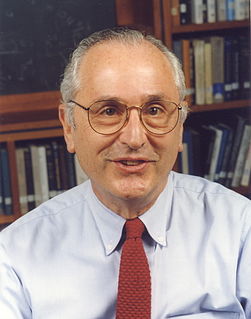A Quote by Charlotte Perkins Gilman
It cannot be too strongly asserted that the insistence on blind, unreasoning faith is due mainly to the maintenance of a subject-matter upon which there was no knowledge, namely the 'other world'; and that this basis was assumed because of early man's preoccupation with death. It is, unfortunately, quite possible to believe a thing which is contradicted by facts, especially if the facts are not generally known; but if the whole position on which we rested our religions had been visibly opposed by what we did know, even the unthinking masses would, in time, have noticed it.
Quote Topics
Assumed
Basis
Because
Been
Believe
Blind
Cannot
Death
Did
Due
Early
Even
Facts
Faith
Generally
Had
Insistence
Know
Knowledge
Known
Mainly
Maintenance
Man
Masses
Matter
Namely
Noticed
Opposed
Other
Our
Position
Possible
Preoccupation
Quite
Religions
Rested
Strongly
Subject
Thing
Time
Too
Unfortunately
Which
Whole
World
Would
Related Quotes
All doctrines relating to the creation of the world, the government of man by superior beings, and his destiny after death, are conjectures which have been given out as facts, handed down with many adornments by tradition, and accepted by posterity as "revealed religion". They are theories more or less rational which uncivilised men have devised in order to explain the facts of life, and which civilised men believe that they believe.
[The scientist] believes passionately in facts, in measured facts. He believes there are no bad facts, that all facts are good facts, though they may be facts about bad things, and his intellectual satisfaction can come only from the acquisition of accurately known facts, from their organization into a body of knowledge, in which the inter-relationship of the measured facts is the dominant consideration.
The Reader may here observe the Force of Numbers, which can be successfully applied, even to those things, which one would imagine are subject to no Rules. There are very few things which we know, which are not capable of being reduc'd to a Mathematical Reasoning, and when they cannot, it's a sign our Knowledge of them is very small and confus'd; and where a mathematical reasoning can be had, it's as great folly to make use of any other, as to grope for a thing in the dark when you have a Candle standing by you.
I have great hope and faith, but it's a humanistic faith based in facts; you have to believe that facts exist. We can all arrive at the same facts if we engage in the process of experimentation, observation, and verification, which can solve more of the world's major problems than a debate over whether God does or doesn't exist.
All good intellects have repeated, since Bacon's time, that there can be no real knowledge but that which is based on observed facts. This is incontestable, in our present advanced stage; but, if we look back to the primitive stage of human knowledge, we shall see that it must have been otherwise then. If it is true that every theory must be based upon observed facts; it is equally true that facts can not be observed without the guidance of some theory. Without such guidance, our facts would be desultory and fruitless; we could not retain them: for the most part we could not even perceive them.
The fact would seem to be, if in my situation one may speak of facts, not only that I shall have to speak of things of which I cannot speak, but also, which is even more interesting, but also that I, which is if possible even more interesting, that I shall have to, I forget, no matter. And at the same time I am obliged to speak. I shall never be silent. Never.
Yet, after all, faith is not our righteousness. It is accounted to us in order to righteousness (Rom 4:5, GREEK), but not as righteousness; for in that case it would be a work like any other doing of man, and as such would be incompatible with the righteousness of the Son of God; the righteousness which is by faith. Faith connects us with the righteousness, and is therefore totally distinct from it. To confound the one with the other is to subvert the whole gospel of the grace of God. Our act of faith must ever be a separate thing from that which we believe.
She smiled. She knew she was dying. But it did not matter any longer. She had known something which no human words could ever tell and she knew it now. She had been awaiting it and she felt it, as if it had been, as if she had lived it. Life had been, if only because she had known it could be, and she felt it now as a hymn without sound, deep under the little whole that dripped red drops into the snow, deeper than that from which the red drops came. A moment or an eternity- did it matter? Life, undefeated, existed and could exist. She smiled, her last smile, to so much that had been possible.
It was possible, maybe, to have facts in your mind that weren't facts at all. You could build a whole life's story on false assumptions. You could make truths out of untruths and untruths out of truths. Until you spoke them, really said them out loud or checked for sure, you may not have known which were which.
I personally feel it is presumptuous to believe that man can determine the whole temporal structure of the universe, its evolution, development and ultimate fate from the first nanosecond of creation to the last 10^10 years, on the basis of three or four facts which are not very accurately known and are disputed among the experts.







































